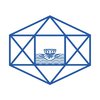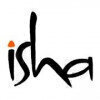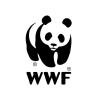
i
Sri Aurobindo
Society
Filter interviews by
Sri Aurobindo Society Interview Questions and Answers
15 Interview questions
Competency-based education focuses on students mastering skills and knowledge at their own pace, emphasizing practical application.
Learner-centered approach: Students progress based on their ability to demonstrate competency rather than time spent in class.
Personalized learning: Tailors education to individual needs, allowing students to focus on areas where they need improvement.
Real-world application: Emphasizes...
A good trainer possesses strong communication skills, subject matter expertise, adaptability, patience, and passion for teaching.
Strong communication skills to effectively convey information and engage participants
Subject matter expertise to provide accurate and valuable training content
Adaptability to adjust training methods based on participants' needs and feedback
Patience to work with individuals at different l...
Education is essential for personal growth, societal development, and economic prosperity.
Education empowers individuals by providing knowledge and skills to succeed in life.
It plays a crucial role in shaping a person's character, values, and beliefs.
Education is key to reducing poverty, inequality, and promoting social justice.
It helps in fostering innovation, critical thinking, and problem-solving abilities.
Acce...
NEP-2020 is the New Education Policy introduced by the Government of India to revamp the education system.
NEP-2020 aims to make education more holistic, flexible, multidisciplinary, and aligned to the needs of the 21st century.
It focuses on promoting critical thinking, creativity, and experiential learning.
The policy emphasizes the importance of early childhood care and education, foundational literacy, and numera...
Indian education culture emphasizes rote learning, discipline, respect for teachers, and a focus on academic excellence.
Rote learning is common, with an emphasis on memorization rather than critical thinking.
Discipline is highly valued, with strict rules and regulations in schools and colleges.
Respect for teachers is ingrained in students from a young age, with teachers often seen as authority figures.
Academic exc...
I have 2 years of experience in calling process for sales and customer service.
Handled inbound and outbound calls for a telecom company
Achieved monthly sales targets consistently
Resolved customer complaints and queries effectively
Trained new hires on call handling and product knowledge
Bloom's Taxonomy is a framework for categorizing educational goals into levels of complexity and specificity.
The levels are: Remembering, Understanding, Applying, Analyzing, Evaluating, and Creating.
Each level builds upon the previous one, with higher levels requiring more complex cognitive skills.
Examples of activities at each level include: recalling facts (Remembering), explaining concepts (Understanding), solv...
Osmosis is the movement of water molecules from a region of high concentration to a region of low concentration through a semi-permeable membrane.
Osmosis is a type of passive transport.
It occurs in living cells and is important for maintaining cell shape and function.
Examples of osmosis include the movement of water from the roots of a plant to its leaves and the movement of water from the bloodstream into cells.
O...
Rancidity is the process of spoilage of fats and oils resulting in unpleasant odor and taste.
Rancidity occurs due to oxidation or hydrolysis of fats and oils.
It can be prevented by storing in airtight containers, adding antioxidants, and refrigeration.
Examples of rancid foods include stale nuts, spoiled butter, and old cooking oils.
Experiential teaching is a hands-on approach to learning that emphasizes active participation and practical application.
Involves learning by doing
Encourages critical thinking and problem-solving skills
Often includes group work and collaboration
Examples include field trips, simulations, and role-playing exercises
Sri Aurobindo Society Interview Experiences
33 interviews found
Curriculum Development Manager Interview Questions & Answers
posted on 11 Jul 2025
I appeared for an interview before Jul 2024, where I was asked the following questions.
- Q1. Related to subject knowledge.
- Q2. Long term association.
Interview Preparation Tips
I appeared for an interview in Mar 2025, where I was asked the following questions.
- Q1. About aur Introduction
- Ans.
Experienced MIS Executive with a strong background in data management, analytics, and strategic decision-making.
Over 8 years of experience in Management Information Systems (MIS).
Proficient in data analysis tools like SQL, Excel, and Tableau.
Led a team to implement a new reporting system that improved efficiency by 30%.
Strong understanding of business processes and how to leverage data for strategic insights.
Experience...
- Q2. About Sri Aurobindo society
I applied via Naukri.com and was interviewed in Feb 2024. There were 2 interview rounds.
(4 Questions)
- Q1. First round interview was virtual, where u give a brief about urself
- Q2. Self description
- Q3. Case demo, how can u handle situations
- Q4. Brief about disabilities
Second round was case study, questions asked regarding field work
I applied via Job Fair and was interviewed in Mar 2024. There was 1 interview round.
(4 Questions)
- Q1. About your self
- Q2. Describe the you role in last organization
- Ans.
In my last organization, I was a project manager overseeing multiple teams to ensure timely delivery of high-quality projects.
Led a team of 10 in developing a new software application, resulting in a 30% increase in efficiency.
Coordinated cross-departmental collaboration to streamline processes, which reduced project timelines by 15%.
Implemented Agile methodologies, improving team productivity and adaptability to chang...
- Q3. What subject of your
- Q4. Make the content or not
Interview Preparation Tips
(2 Questions)
- Q1. Number of interview round is
- Q2. 4 round interview HR round Training manager round 2 more round is also there
Interview Preparation Tips
I applied via Naukri.com and was interviewed in Apr 2024. There was 1 interview round.
(5 Questions)
- Q1. Tell me about your self
- Ans.
I am a passionate Capacity Building Trainer with a strong background in adult education and community development.
Over 5 years of experience in training diverse groups, including educators and community leaders.
Developed and implemented training programs that improved participant engagement by 30%.
Skilled in using various training methodologies, such as workshops, e-learning, and hands-on activities.
Collaborated with N...
- Q2. Teachers quality
- Q3. Education minister of india
- Q4. Presentation video for trainers
- Q5. Quality of a good trainer
- Ans.
A good trainer possesses strong communication skills, subject matter expertise, adaptability, patience, and passion for teaching.
Strong communication skills to effectively convey information and engage participants
Subject matter expertise to provide accurate and valuable training content
Adaptability to adjust training methods based on participants' needs and feedback
Patience to work with individuals at different learni...
I applied via Job Portal and was interviewed in Sep 2023. There was 1 interview round.
(3 Questions)
- Q1. About yourself and work experience
- Q2. About yourself and work experience location for job
- Q3. About yourself and work experience
I applied via Walk-in and was interviewed in Nov 2023. There were 3 interview rounds.

What should be the quality in nursery teacher?
(2 Questions)
- Q1. Where have worked before?
- Ans.
I have worked in various educational settings, focusing on early childhood development and fostering a love for learning in young children.
Worked at ABC Nursery for 3 years, implementing play-based learning activities.
Conducted parent-teacher meetings to discuss children's progress and development.
Organized seasonal events, such as a spring fair, to engage families and the community.
Collaborated with a team of teachers...
- Q2. How will you do a lesson plan for good habits ?And what do you use for it.
I appeared for an interview before Feb 2024.
(2 Questions)
- Q1. Family background
- Q2. Last job history
I appeared for an interview before Apr 2024, where I was asked the following questions.
- Q1. What are your previous professional experiences?
- Ans.
I have diverse experience in management, team leadership, and project coordination across various industries.
Led a team of 10 in a retail environment, improving sales by 20% through effective training and motivation.
Managed a project that streamlined operations, reducing costs by 15% and increasing efficiency.
Coordinated cross-departmental initiatives, enhancing communication and collaboration among teams.
Implemented c...
- Q2. What is your understanding of competency-based education?
- Ans.
Competency-based education focuses on students mastering skills and knowledge at their own pace, emphasizing practical application.
Learner-centered approach: Students progress based on their ability to demonstrate competency rather than time spent in class.
Personalized learning: Tailors education to individual needs, allowing students to focus on areas where they need improvement.
Real-world application: Emphasizes prac...
Top trending discussions






Sri Aurobindo Society Interview FAQs
The duration of Sri Aurobindo Society interview process can vary, but typically it takes about less than 2 weeks to complete.
Tell us how to improve this page.
Sri Aurobindo Society Interviews By Designations
- Sri Aurobindo Society Capacity Building Trainer Interview Questions
- Sri Aurobindo Society Content Developer Interview Questions
- Sri Aurobindo Society Curriculum Developer Interview Questions
- Sri Aurobindo Society HR Executive Interview Questions
- Sri Aurobindo Society Business Associate Interview Questions
- Sri Aurobindo Society Assistant Manager Interview Questions
- Sri Aurobindo Society Web Developer Interview Questions
- Sri Aurobindo Society Trainer Interview Questions
- Show more
Interview Questions for Popular Designations
- Capacity Building Trainer Interview Questions
- Content Developer Interview Questions
- Senior Executive Interview Questions
- Team Lead Interview Questions
- Senior Engineer Interview Questions
- Consultant Interview Questions
- Accountant Interview Questions
- Senior Software Engineer Interview Questions
- Show more
Overall Interview Experience Rating
based on 25 interview experiences
Difficulty level
Duration
Interview Questions from Similar Companies
Sri Aurobindo Society Reviews and Ratings
based on 325 reviews
Rating in categories
5-7 Yrs
₹ 4.6-6.5 LPA
|
Capacity Building Trainer
77
salaries
| ₹2.7 L/yr - ₹6 L/yr |
|
Trainer
29
salaries
| ₹2.3 L/yr - ₹4.5 L/yr |
|
Assistant Manager
24
salaries
| ₹3.8 L/yr - ₹6.5 L/yr |
|
SME
19
salaries
| ₹3.6 L/yr - ₹7.2 L/yr |
|
State Coordinator
16
salaries
| ₹3.5 L/yr - ₹7.2 L/yr |

The Akshaya Patra Foundation

Anudip Foundation

Piramal Foundation

Deshpande Foundation
- Home >
- Interviews >
- Sri Aurobindo Society Interview Questions












